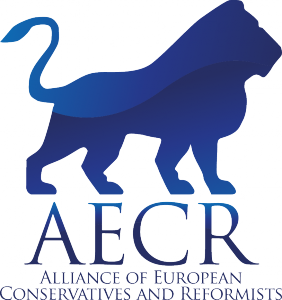 Dr. Hannes H. Gissurarson, Professor of Politics at the University of Iceland and RNH Academic Director, gives a lecture at the London think tank the Institute of Economic Affairs at 2 Lord North Street in Westminster (close to Westminster Palace) Thursday 27 November at 18.30. The lecture is titled “Why was Iceland left out in the cold? and kept there?” According to an IEA announcement, Professor Gissurarson will discuss
Dr. Hannes H. Gissurarson, Professor of Politics at the University of Iceland and RNH Academic Director, gives a lecture at the London think tank the Institute of Economic Affairs at 2 Lord North Street in Westminster (close to Westminster Palace) Thursday 27 November at 18.30. The lecture is titled “Why was Iceland left out in the cold? and kept there?” According to an IEA announcement, Professor Gissurarson will discuss
- the liberal economic reforms in Iceland in 1991–2004;
- the development from market capitalism to crony capitalism in 2004–8;
- the relations between Iceland and the UK before the Icelandic bank collapse on 7 October 2008;
- the closure same day by British authorities of the London branch of Landsbanki, and the two Icelandic-owned British banks, Heritable and KSF, Kaupthing, Singer & Friedlander;
- the use by the UK government on the next day, 8 October 2008, of the anti-terrorism law against Landsbanki, the Central Bank of Iceland and the Icelandic Financial Authority and its consequences for the Icelandic economy;
- and the subsequent dispute in 2008–13 between the UK and Iceland on the liability for the Landsbanki Icesave accounts, leading to three failed deals and two national referenda.
 Admission is free and all are welcome, with a reception following the lecture and discussion. The IEA is one of the most influential think tanks in the UK, and indeed in the whole world. Its founders, the businessman Sir Anthony Fisher and economist Lord Harris of High Cross, both visited Iceland in the 1980s and gave talks. In 2013, Professor Philip Booth, the IEA Academic Director, came to Iceland and read a paper on the real causes of the financial crisis. Professor Gissurarson’s lecture forms a part of the joint project of RNH and AECR, Alliance of European Conservatives and Reformists, on “Europe, Iceland and the Future of Capitalism”.
Admission is free and all are welcome, with a reception following the lecture and discussion. The IEA is one of the most influential think tanks in the UK, and indeed in the whole world. Its founders, the businessman Sir Anthony Fisher and economist Lord Harris of High Cross, both visited Iceland in the 1980s and gave talks. In 2013, Professor Philip Booth, the IEA Academic Director, came to Iceland and read a paper on the real causes of the financial crisis. Professor Gissurarson’s lecture forms a part of the joint project of RNH and AECR, Alliance of European Conservatives and Reformists, on “Europe, Iceland and the Future of Capitalism”.


